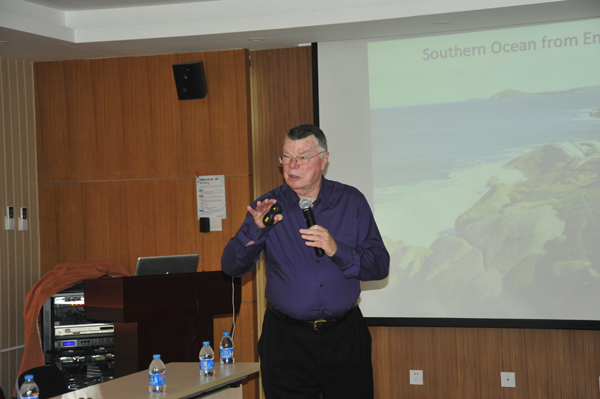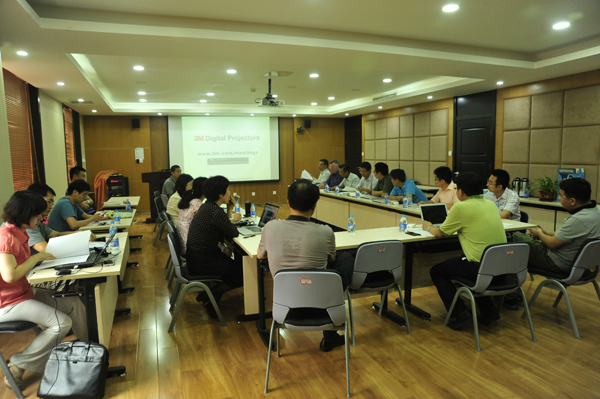International cooperation on Himalayas research
Date:2015-06-02
The 1st International Collaborative Workshop on Himalayas: Asian Earth System Simulation-Cooperation between International Centre for Earth Simulation (ICES) Foundation and LASG/IAP was held at the State Key Laboratory of Numerical Modelling for Atmospheric Sciences and Geophysical Fluid Dynamics (LASG), Institute of Atmospheric Physics (IAP), Chinese Academy of Sciences (CAS) on 28th May 2015. The workshop aimed to discuss the future association of Asian ICES and agreements of collaboration and projects between ICES and LASG/IAP.

The ICES Foundation is a not-for-profit tax-exempt Swiss Foundation that was created in Geneva in the month of January 2010 for the purpose of attracting finances to build and operate a Swiss-based International Centre for Earth Simulation and to build a global network of partner activities. The mission of ICES is to integrate the vast pools of knowledge contained within today’s multitude of scientific and socio-economic specializations and to develop next generation “holistic” modeling, simulation and visualizations that accurately depict the medium and long term future direction of planet Earth.

Prof. WU Guoxiong made the welcome remarks and emphasized the significance of collaborating with ICES on the project of Himalayas Climate Modeling. Prof. LU Riyu, Deputy Director-General of IAP/CAS, Mrs. ZHANG Lu, Director of Science and Technology Department in IAP/CAS, Prof. ZHOU Tianjun, Deputy Director of LASG/IAP, Prof. XIE Zhenghui, Deputy Director of LASG/IAP, Dr. Bob Bishop, President of ICES, Dr. XUE Zengyun, Advisor for China in ICES and over 20 IAP scientists attended the meeting.
Prof. LU Riyu reviewed the history of LASG and its research fields. Prof. WU Guoxiong, Prof. ZHOU Tianjun, Prof. XIE Zhenghui, Prof. DUAN Anmin, Prof. Yimin Liu, Prof. YU Yongqiang, Prof. LIU Hailong, Drs. BAO Qing and JIA Binghao gave talks on the aspects of Himalayas (Tibetan Plateau) Impacts, Himalayas Climate Modeling, Climate System Models at LASG/IAP, Development of LASG Ocean Model and Land Surface-Hydrology Modeling, etc. Dr. Bishop fully affirmed the achievements made by scientists at LASG/IAP, and briefly introduced the history of ICES and power of simulation in the sciences.
The detailed discussion was made on the future collaborations between ICES and LASG/IAP in the fields of data visualization of climate modeling, water resources, prediction of climate disaster, etc. Both parties were expecting a long term cooperation for the climate simulation and contribution to the sustainable development.
